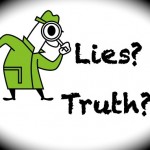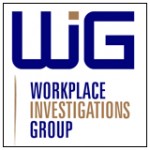 One of the most important and often most challenging tasks of the workplace investigator is to make credibility determinations about witnesses. Over the years, a common mistake I’ve seen investigators make in investigating allegations of workplace misconduct is failing to make findings of fact because they were not comfortable making the necessary credibility assessments where there were conflicting statements made by the people interviewed. Good and well-trained investigators, however, recognize that credibility assessments are not only a critical part of their responsibility but also understand the importance of documenting how such credibility assessments were made.
One of the most important and often most challenging tasks of the workplace investigator is to make credibility determinations about witnesses. Over the years, a common mistake I’ve seen investigators make in investigating allegations of workplace misconduct is failing to make findings of fact because they were not comfortable making the necessary credibility assessments where there were conflicting statements made by the people interviewed. Good and well-trained investigators, however, recognize that credibility assessments are not only a critical part of their responsibility but also understand the importance of documenting how such credibility assessments were made.
Before I set forth some best practices for assessing witness credibility, I think it’s also helpful to revisit the “honest belief” defense. Under the “honest belief” defense, if an employer can demonstrate that it had an honestly believed, nondiscriminatory reason for taking the employment action being challenged, an employee cannot establish that the offered reason is pretextual simply because the employee may be able to prove subsequently that the employer was wrong in its honest belief. I don’t review the “honest belief” defense here as some type of “get out of jail free” card for employers but rather as a reminder of the standard of review that courts will use in reviewing an employer’s decision that is later alleged to be discriminatory.
So, how does an investigator assess witness credibility? There is a lot of discussion in the literature on this topic, but one of the most pragmatic approaches I’ve suggested over the years is to turn to the pattern jury instructions in the relevant jurisdiction on witness credibility and use them as a guide. Why? It goes back to anticipating the “honest belief” defense discussed above. The investigator is not charged with making factual findings beyond a reasonable doubt or that are 100% accurate, but rather making factual findings based on a well-done and thorough investigation. The employer will then take or not take an employment action based on its “honest belief” of the facts as established by the investigation. Utilizing the relevant jurisdiction’s standard jury instructions provides an easily available and defensible checklist should the investigator/employer later have to defend the process used to assess credibility.
Generally, an investigator will be able to locate the applicable pattern jury instructions with a simple “Google” search. By way of example, I’ve set forth below the Eleventh Circuit Federal Court Pattern Jury Instructions for Criminal Cases (2010). The Eleventh Circuit includes Georgia, Florida and Alabama.
Credibility of Witnesses
When I say you must consider all the evidence, I don’t mean that you must accept all the evidence as true or accurate. You should decide whether you believe what each witness had to say, and how important that testimony was. In making that decision you may believe or disbelieve any witness, in whole or in part. The number of witnesses testifying concerning a particular point doesn’t necessarily matter.
To decide whether you believe any witness I suggest that you ask yourself a few questions:
• Did the witness impress you as one who was telling the truth?
• Did the witness have any particular reason not to tell the truth?
• Did the witness have a personal interest in the outcome of the case?
• Did the witness seem to have a good memory?
• Did the witness have the opportunity and ability to accurately observe the things he or she testified about?
• Did the witness appear to understand the questions clearly and answer them directly?
• Did the witness’s testimony differ from other testimony or other evidence?
Source: http://www.ca11.uscourts.gov/documents/jury/crimjury.pdf
_________________________________________________________________
 Workplace Investigations Group is headquartered in Atlanta, GA but has a national directory of professional workplace investigators who are all attorneys and have a minimum of ten years of employment litigation experience. As such, wherever the workplace issue arises, corporate counsel and employers can easily identify an investigator who can respond to the regional need quickly, impartially and competently. For more information: www.Workplace-Investigations-Group.com
Workplace Investigations Group is headquartered in Atlanta, GA but has a national directory of professional workplace investigators who are all attorneys and have a minimum of ten years of employment litigation experience. As such, wherever the workplace issue arises, corporate counsel and employers can easily identify an investigator who can respond to the regional need quickly, impartially and competently. For more information: www.Workplace-Investigations-Group.com
